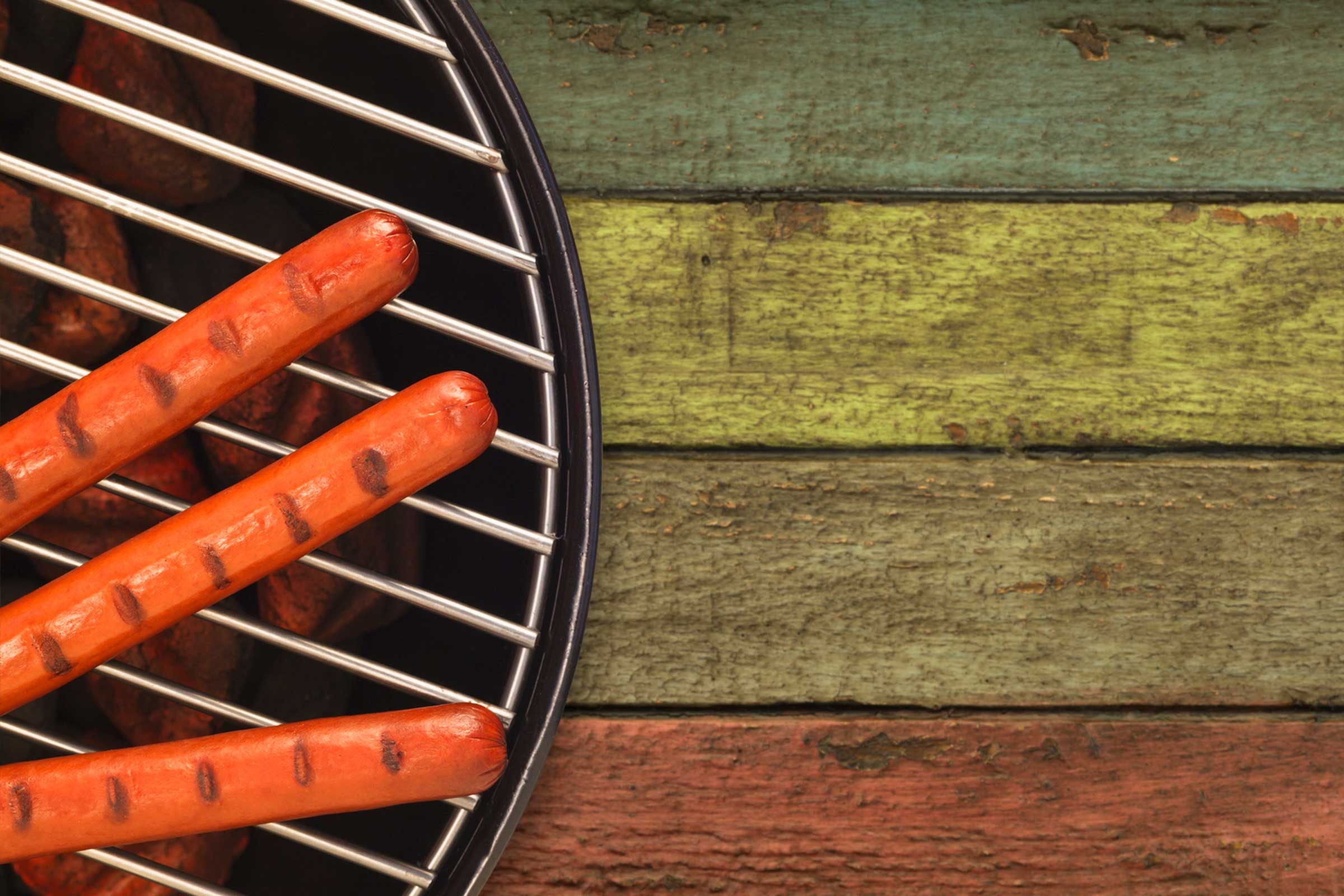
Processed meats
Bacon, ham, hot dogs, and sausages are a part of many Americans’ daily diets but Jennifer Haythe, MD, a cardiologist and assistant professor of medicine at Columbia Presbyterian in New York City won’t go near them. “These products are literally dripping with saturated fats. And we know that sausage and processed meats have been linked to heart failure and cancer,” says Dr. Haythe. What exactly is in processed meat? Processed meat refers to meat that has been salted, cured, fermented or smoked to improve its shelf life. While these foods are quick and convenient, the chemicals and sodium used in processed foods are harmful for our hearts, especially when eaten in larger quantities. Check out the healthy meats you should eat, and which to avoid.
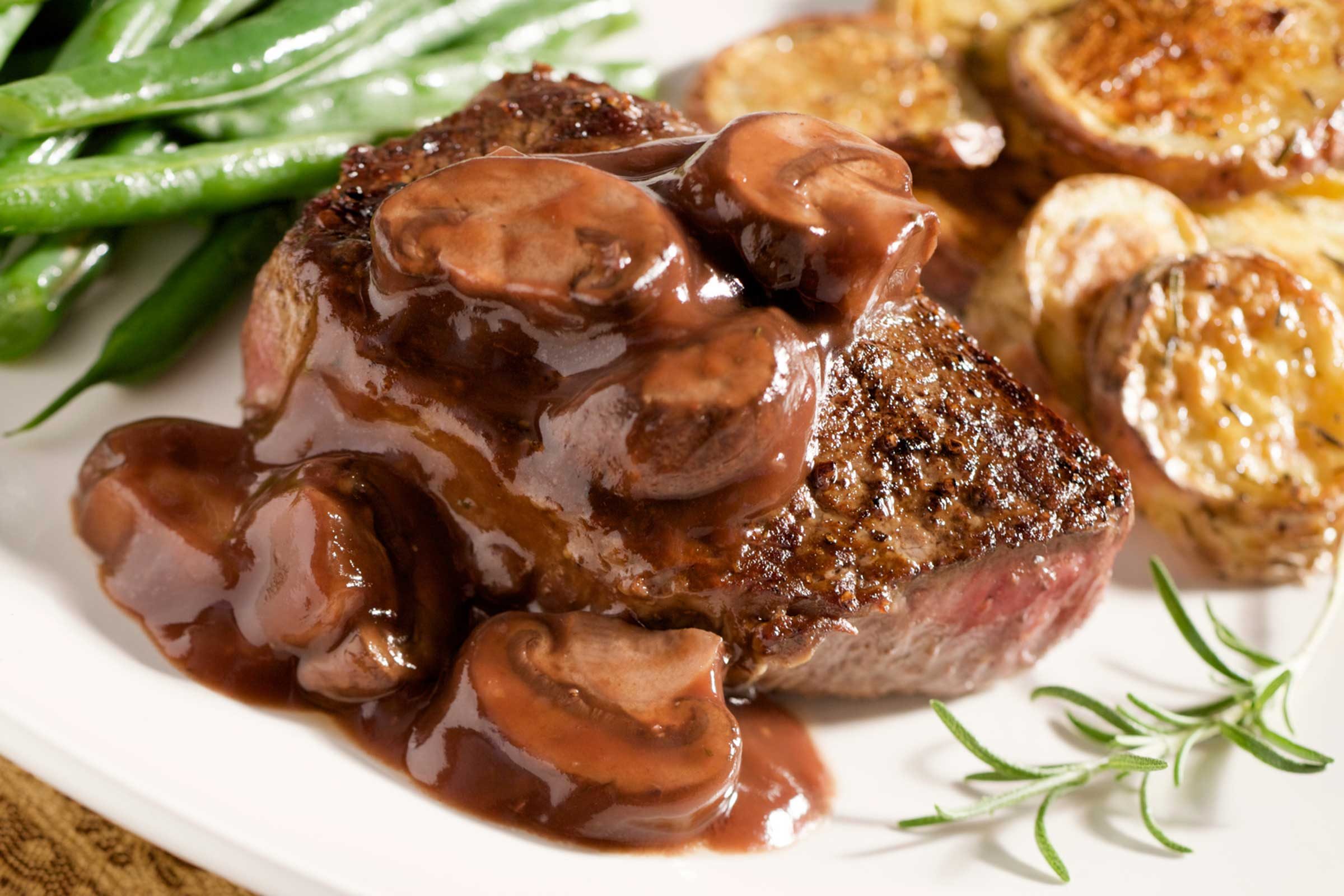
Red meat
A tender and juicy steak topped with mushrooms sauteed in butter is a meal you may want to reserve for a special occasion. “That delicious steak in front of you is full of saturated fats, cholesterol, and salt,” says Dr. Haythe. Dr. Haythe advises all her patients to limit red meat to once a month. When you do eat read meat, looks for leaner cuts like eye of round roast, top roast, top sirloin, and sirloin tips. Uses spices and herbs for flavor and steer clear of butter, cream, and hollandaise sauces. And if you’re out to eat, avoid ordering bone-in steaks and these other foods you should never eat at a restaurant.
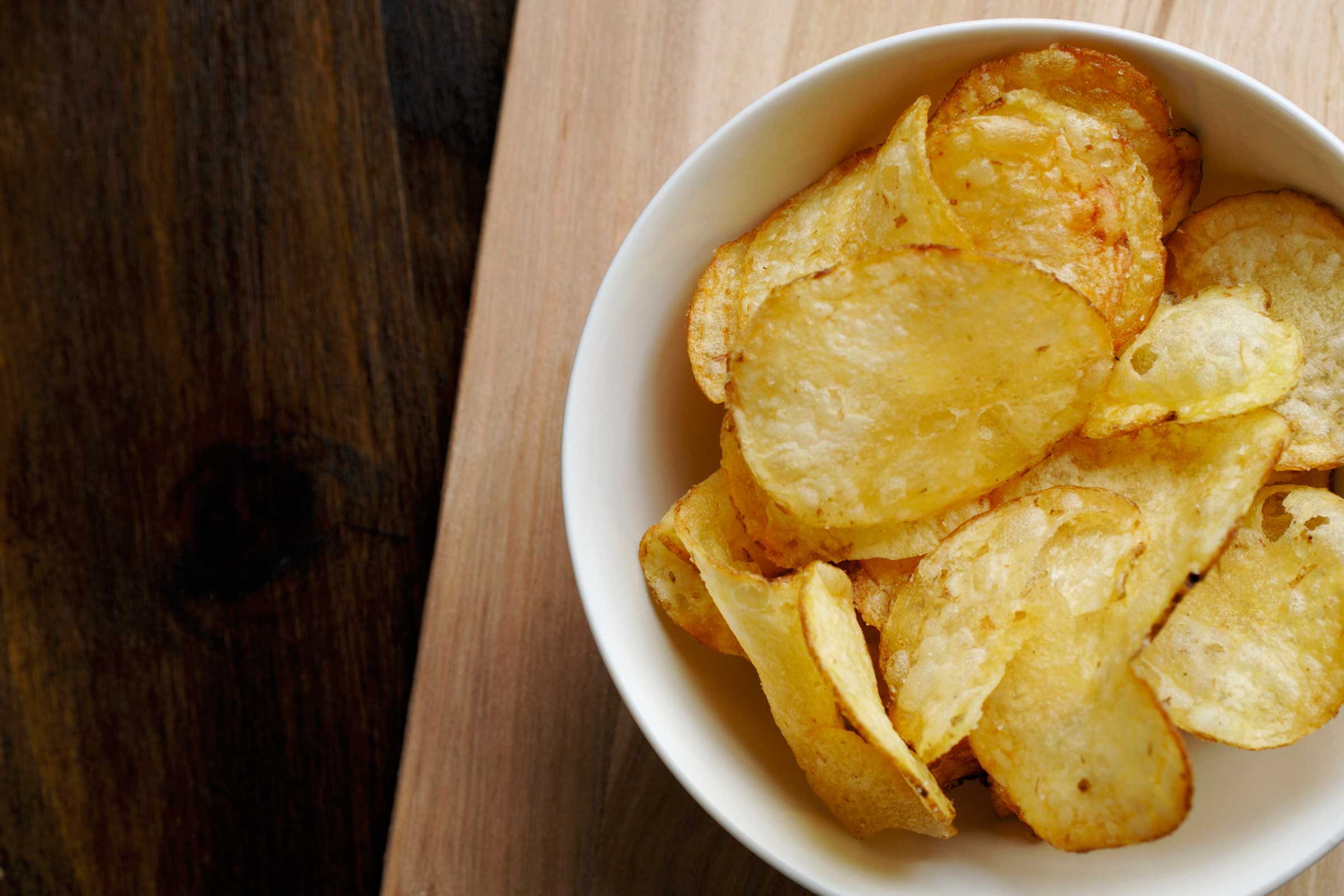
Potato chips
It’s easy to plow through a bag of potato chips or a giant bowl buttered popcorn, but Dr. Haythe says these snacks can be bite-sized bits of trans-fats, sodium, and carbs. A study published in the New England Journal of Medicine found that 99.2 percent of people worldwide consume more than 2,000 milligrams of sodium each day. (Many health organizations recommend no more than 1,500 milligrams a day.) People who consume more than 2,000 milligrams of sodium per day account for one in 10 cardiovascular deaths. Does this mean you have to give up popcorn for your next Netflix binge? If you can’t give up popcorn or chips entirely, try switching to baked chips and or lightly salted and buttered popcorn. To keep tabs on your portion, leave the bag of chips or popcorn in the kitchen and place a snack in a single-serving bowl. Popcorn is one of the best snacks for a low-salt diet.
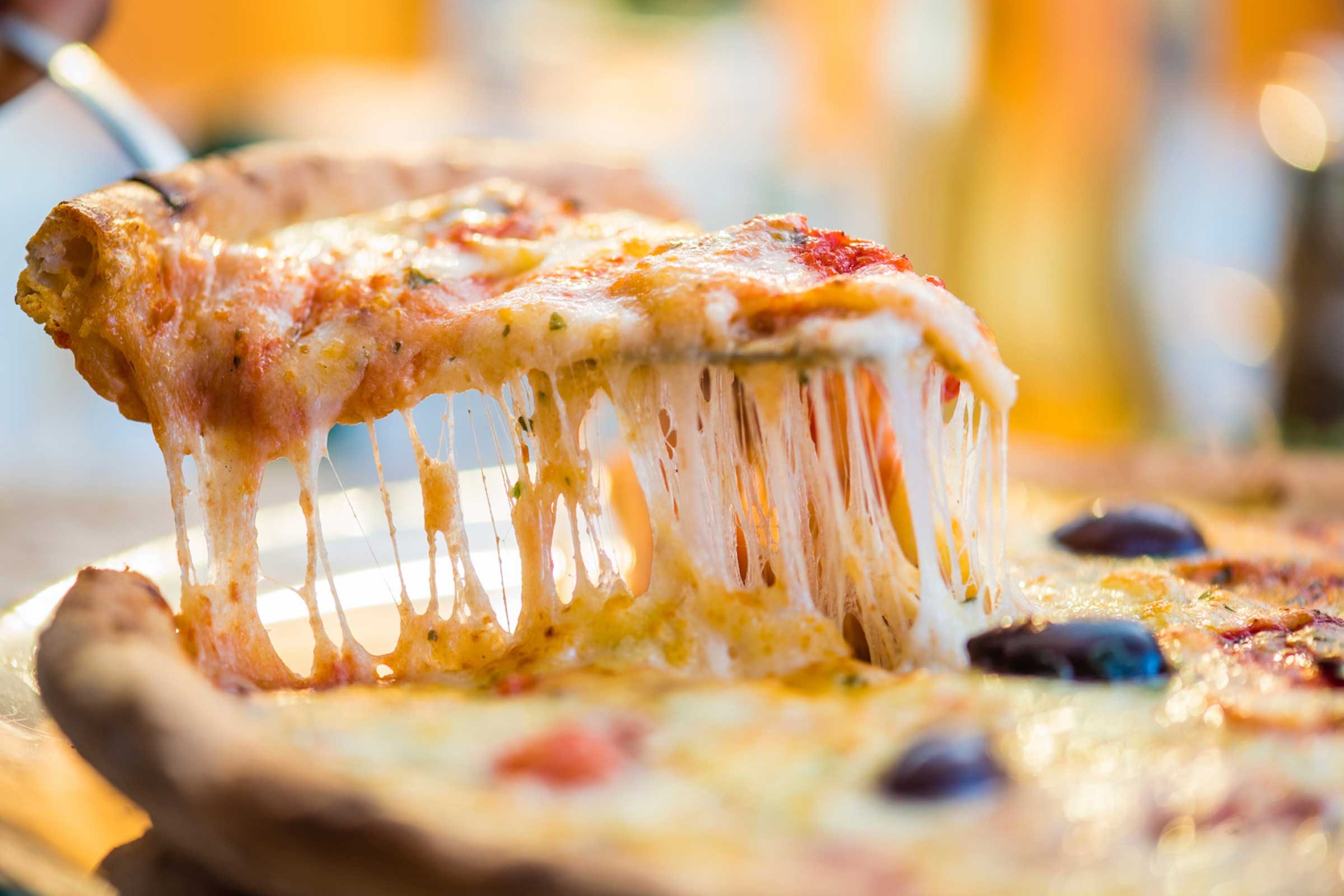
Pizza
A weekly pizza night is something most of us look forward to. Unfortunately, the only thing we’re picking up from the pizzeria is a “giant carbohydrate topped with salt and processed cheese,” says Dr. Haythe. You don’t have to give up your favorite dinner of the week, just order a healthier version with mushrooms, peppers, extra sauce, hold the pepperoni. Another option is to make a healthier homemade pizza at home. “Use whole wheat crust, olive oil, and fresh goat cheese,” recommends Dr. Haythe. Here are some other healthy pizza toppings to use.
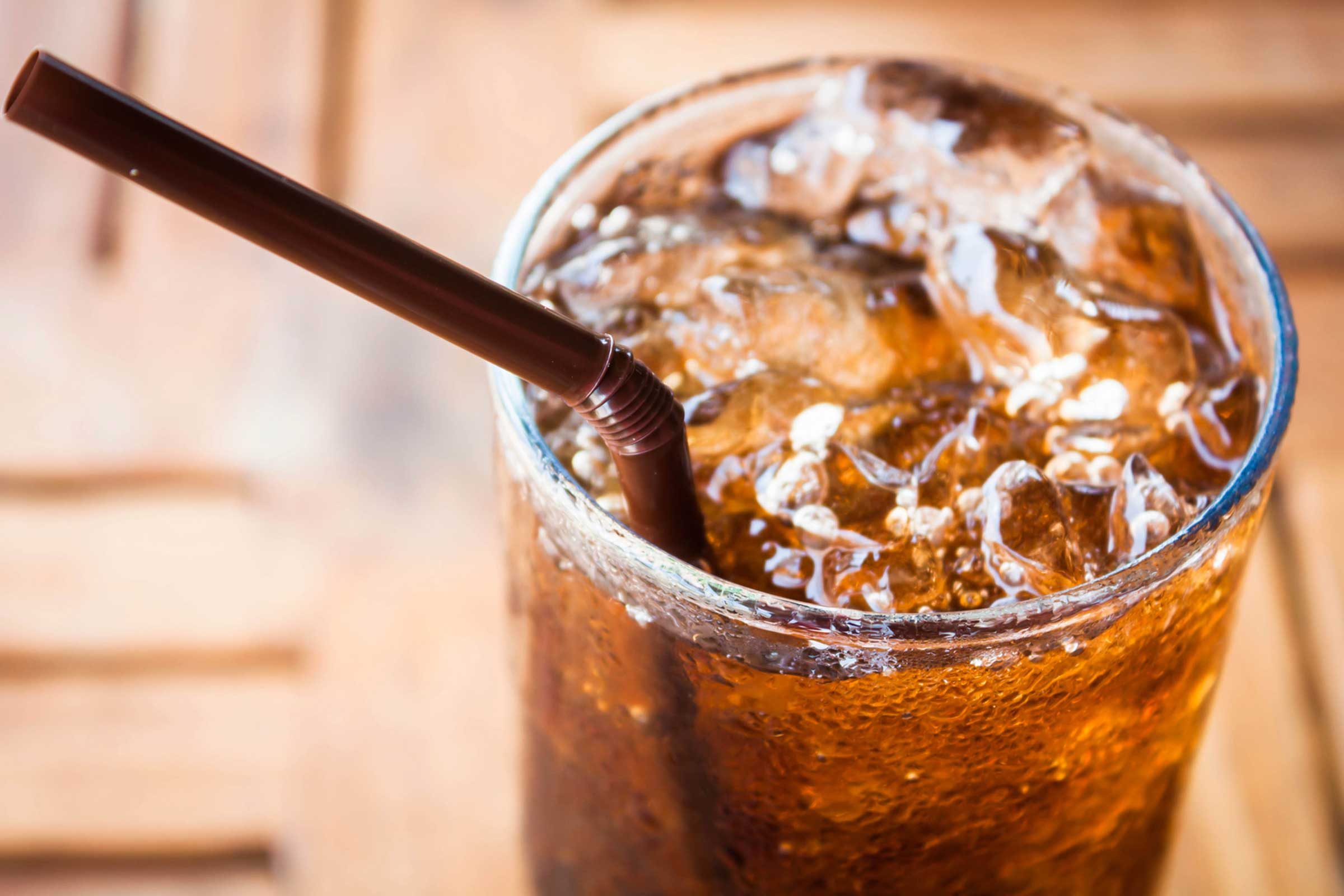
Diet soda
Sindhu Koshy, MD, a cardiologist at Ascension St. John Macomb Oakland Hospital in Michigan says even regular soda is better than diet. “The aspartame in diet soda is actually worse for you than sugar or high fructose corn syrup and can make you crave sweet things.” According to Dr. Koshy, diet soda can promote weight gain and being overweight isn’t good for your heart. According to the American Heart Association (AHA), “Nearly 70 percent of American adults are either overweight or obese. Being obese puts you at a higher risk for health problems such as heart disease, stroke, high blood pressure, diabetes, and more.” Here are the good things that happen to your body if you stop drinking diet soda.
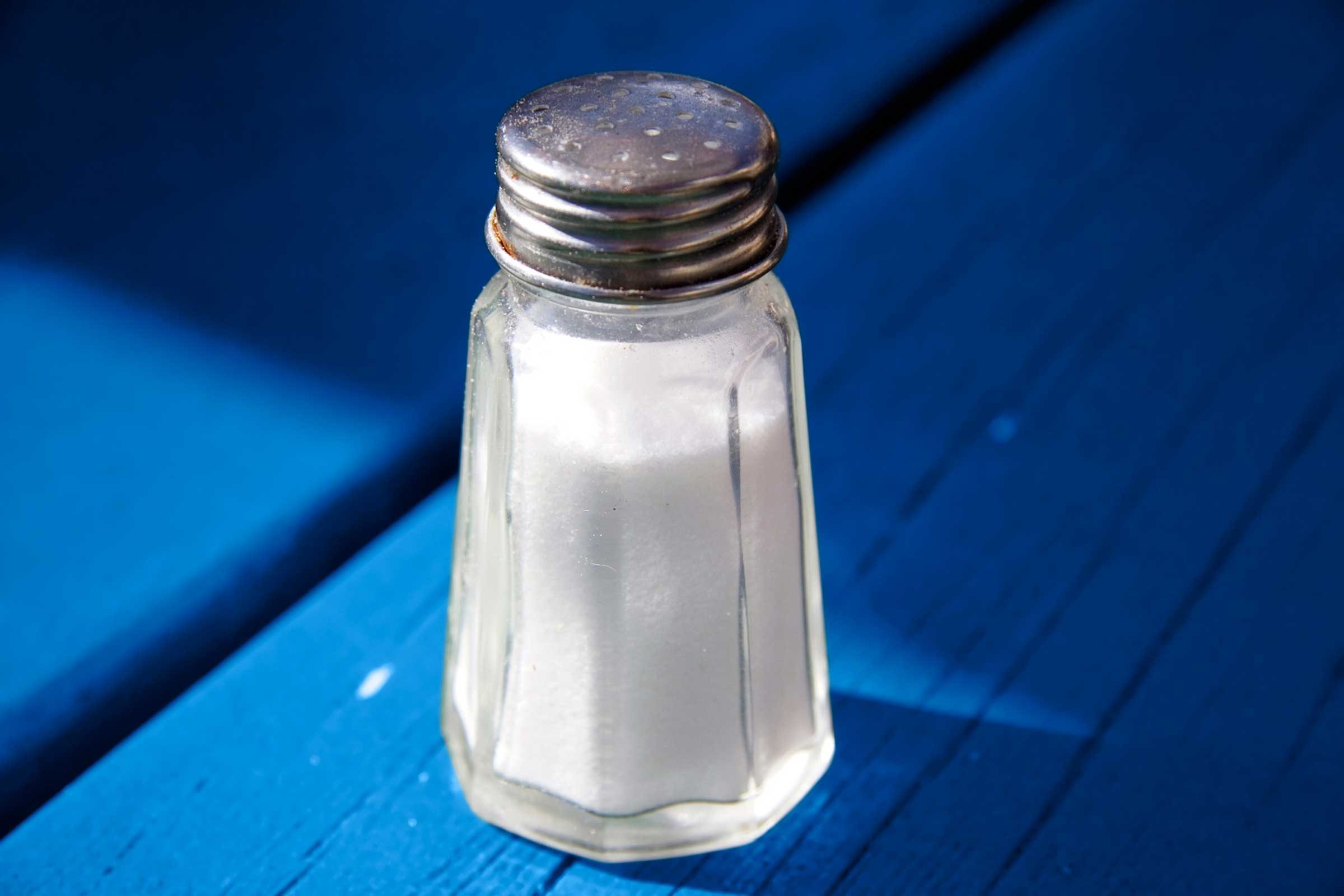
Table salt
It seems our taste buds aren’t satisfied unless we shake salt on our food or find it in a bag of salty chips, but salt can cause issues with blood pressure. If your blood pressure is too high, your arteries can harden and narrow, resulting in a greater chance of heart disease. Dr. Koshy doesn’t add salt to any food or when she cooks. She doesn’t even have a salt shaker on the table. “It doesn’t matter what kind of salt it is—Himalayan sea salt or pink salt—if it has salt in its name, it is no good,” she says. If you’re struggling with high blood pressure, limit your salt intake and introduce your salt-craving taste buds to spices like cumin, curry, garlic, rosemary, cinnamon, etc. The results could be significant in lowering high blood pressure. “Usually, if people with high blood pressure remove salt from their diet, their blood pressure will drop enough that they don’t need medication,” says Koshy. Check out more natural remedies for high blood pressure.
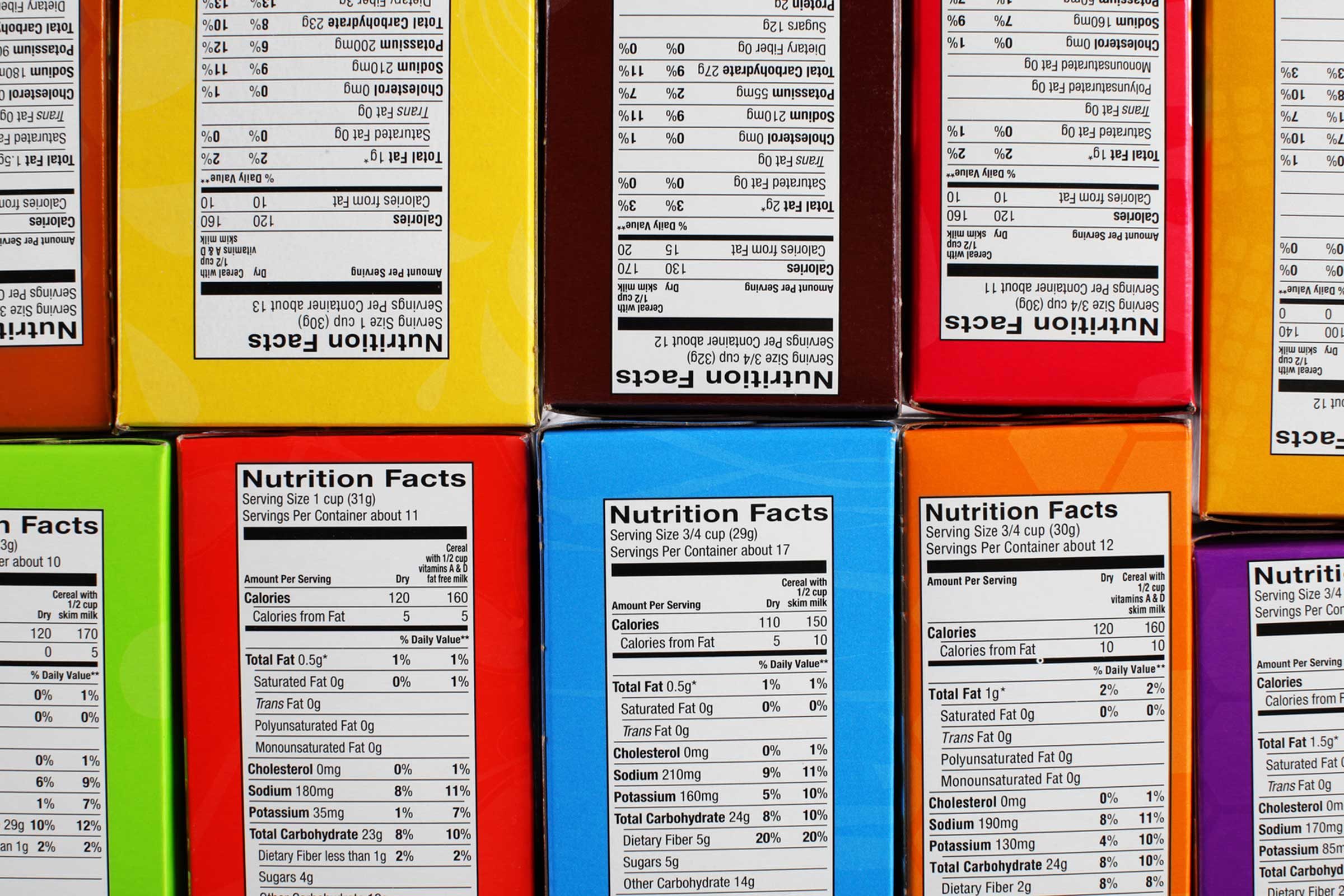
Boxed cereal
Sugar is bad for your teeth and waistline, but your heart isn’t losing any love over it either. A 2014 study published in JAMA: Internal Medicine found people who consumed 17 to 21 percent of calories from added sugar had a 38 percent higher risk of dying from cardiovascular disease than those who consumed 8 percent of their calories from added sugar. Dr. Koshy likens the added sugars in many cereals (and any food with added sugar) to eating candy: “It increases the sugar in our blood, which increases triglycerides and raises cholesterol.” Choose cereals with less added sugars, or better yet, oatmeal. “I recommend oatmeal every day: the plain variety and with fresh fruit added instead of dried fruit or sugar.” While you’re ditching your sugary cereals, check out this list of more breakfast foods you really need to stop eating.
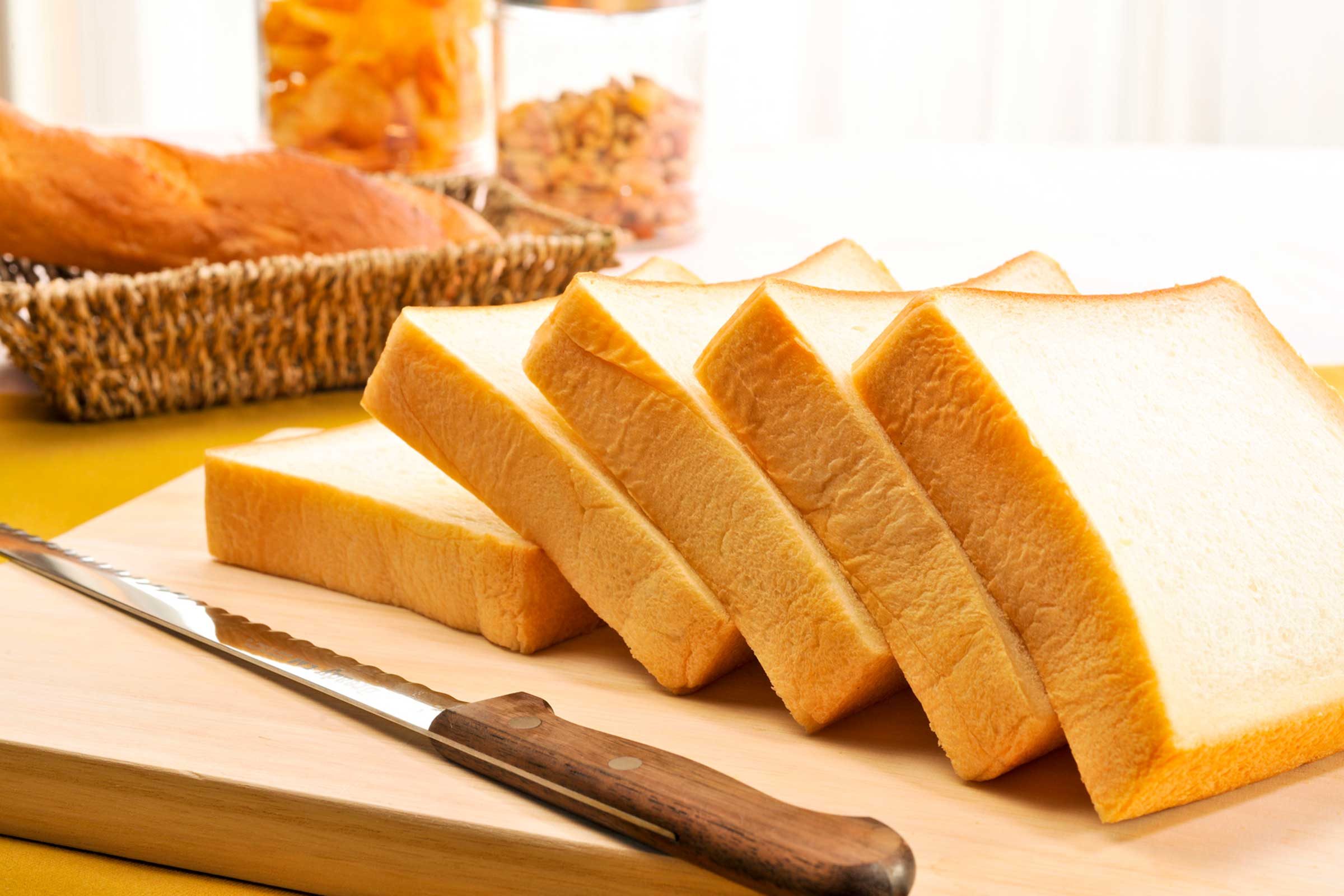
White bread
White bread, pasta, and white rice are all starches that Dr. Koshy avoids. “You want to minimize the amount of white starches that you’re eating because it just turns into sugar [in your body],” warns Dr. Koshy. Look for whole grain breads and pastas, which contain more fiber than white varieties and are digested more slowly to help regulate blood sugar levels. In addition, the whole grains provide more fiber, which helps you feel fuller longer so you’re less likely to have those “sugar crashes” and reach for more sugary snacks between meals. Here are some of the healthiest bread options to choose from.
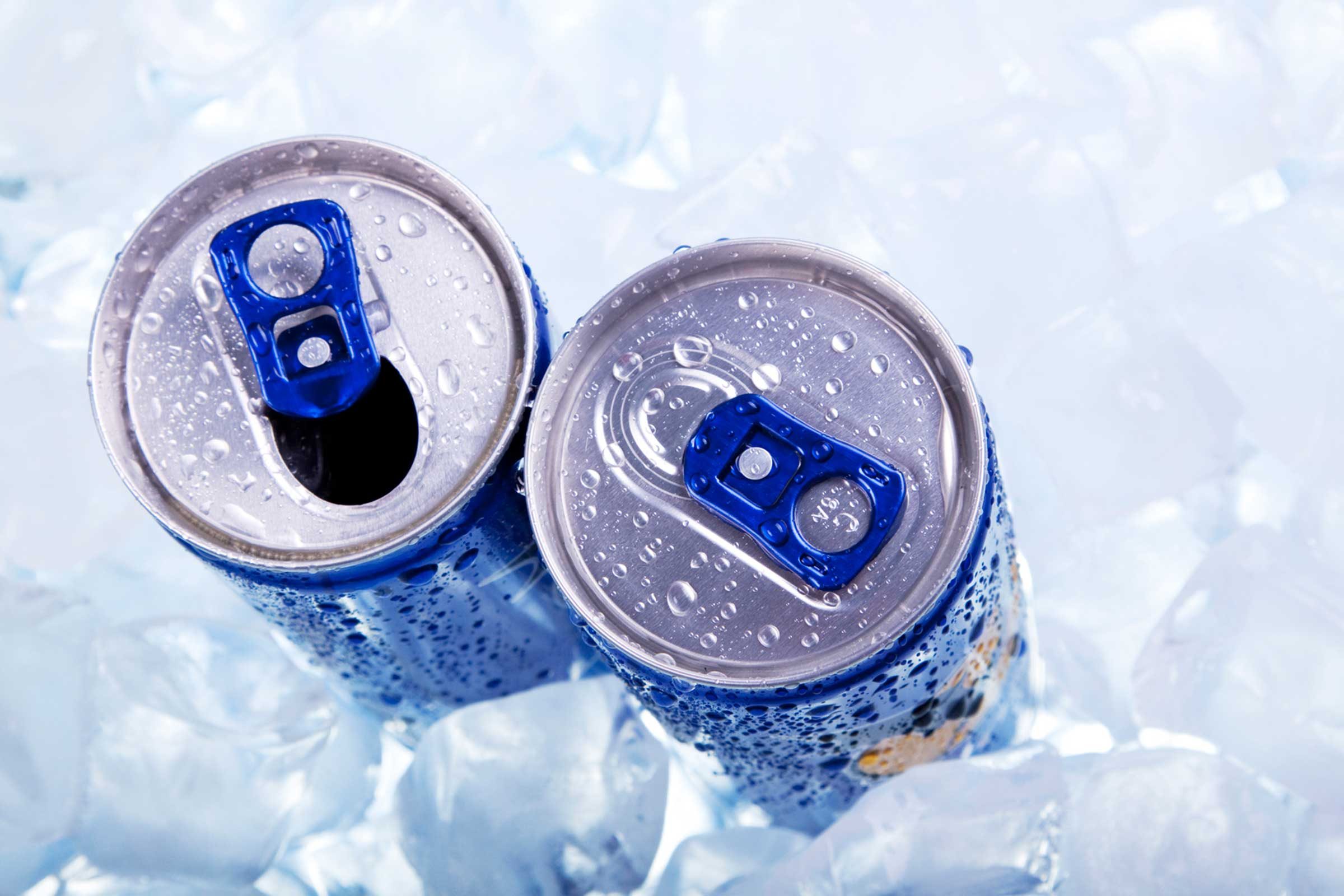
Energy drinks
Most energy drinks claim they are a healthy way to boost energy. Trouble is, several ingredients like guarana and taurine are touted as natural energy boosters and not regulated. Mix these ingredients with caffeine and you could be setting yourself with a racing heartbeat. “There is such a high amount of caffeine in a lot of these energy drinks that it also can trigger arrhythmia,” says Nicole Weinberg, MD, a cardiologist and director of the Pacific Heart Institute’s Women’s Heart Center at Providence Saint John’s Health Center in Santa Monica. “This, coupled with a lack of sleep, which is generally the reason why people are having energy drinks to begin with, is a bad combination,” says Dr. Weinberg. A better idea? Try these natural energy boosters.
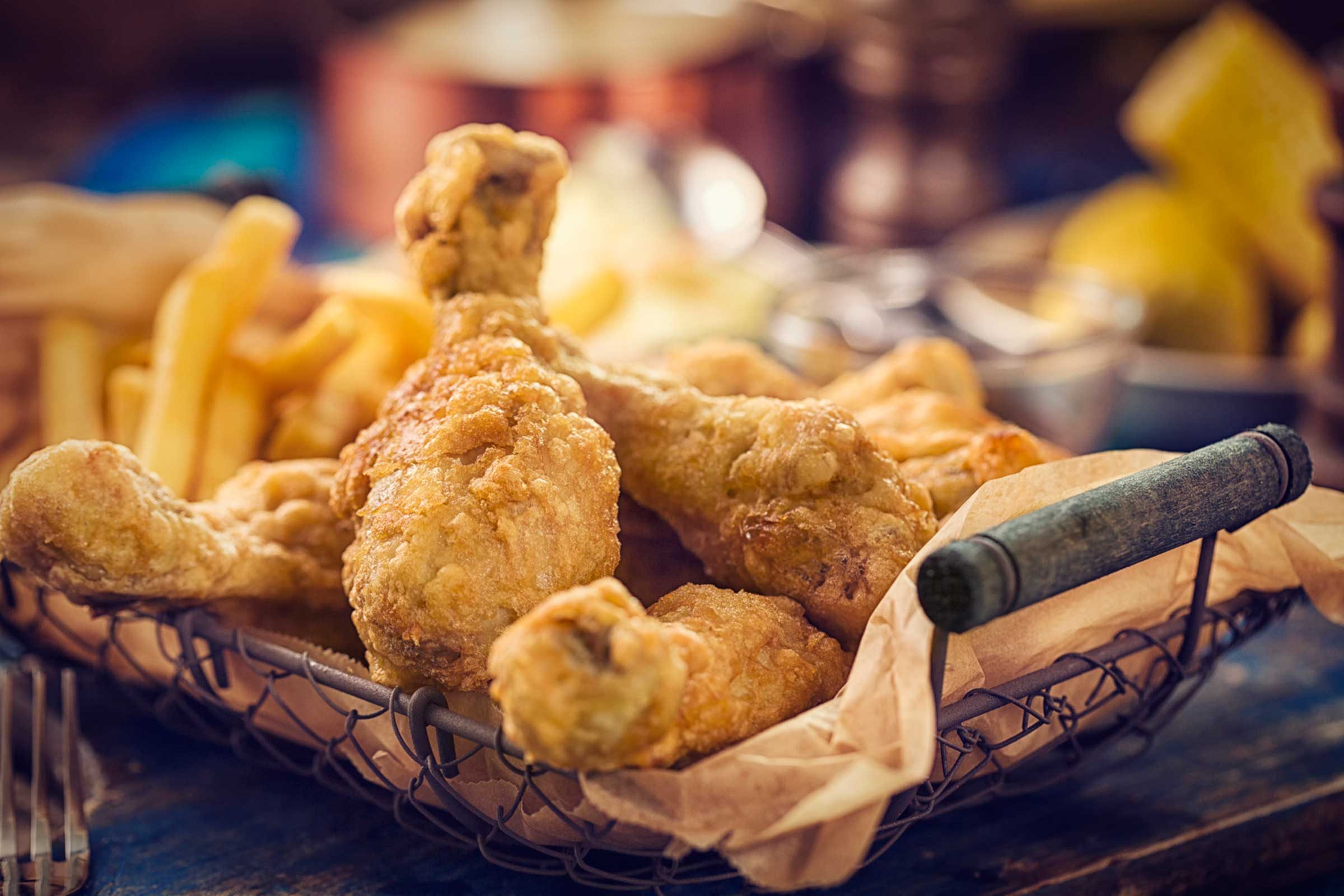
Deep-fried chicken
Americans love deep-fried anything from chicken to candy bars. These foods may be tasty, but according to Dr. Weinberg, they have no nutritional redeeming value, even if the food is a veggie. “It is bad for your heart, bad for your waistline, and brings oxidants into your system,” says Dr. Weinberg. Oxidants are the antioxidants’ arch-nemesis. Deep frying involves hot oil and that changes the structure of vitamins and antioxidants. You’re not only getting added fat and calories but cell-damaging oxidants. Try this oven-fried chicken drumstick recipe when you need your fix.
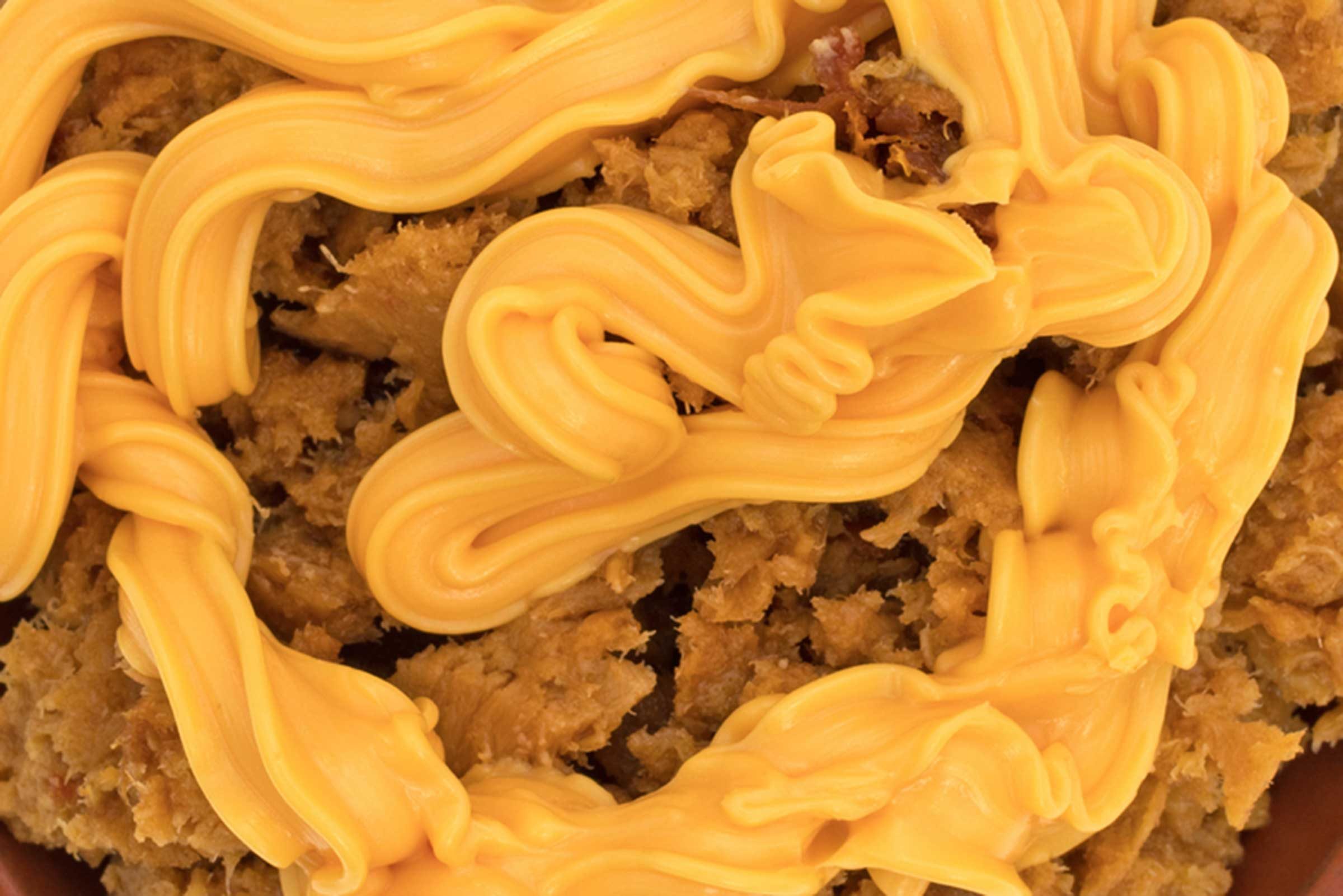
Cheez Whiz
Dr. Victoria Shin, a cardiologist with Torrance Memorial Physicians Network says she avoids this and other processed cheese products because they are filled with preservatives. “Basically, any food item that has a long shelf life will probably reduce our ‘self’ lives,” says Shin. In addition to the chemicals used in preserving shelf life, Cheez Whiz has 91 calories in 2 tablespoons and 7 grams of saturated fat. Let’s face it, we’re pouring more than 2 tablespoons of Cheese Whiz on our nachos. Check out our list of 50 foods to never eat, according to nutritionists (hint: Cheez Whiz made is one of the top 10).
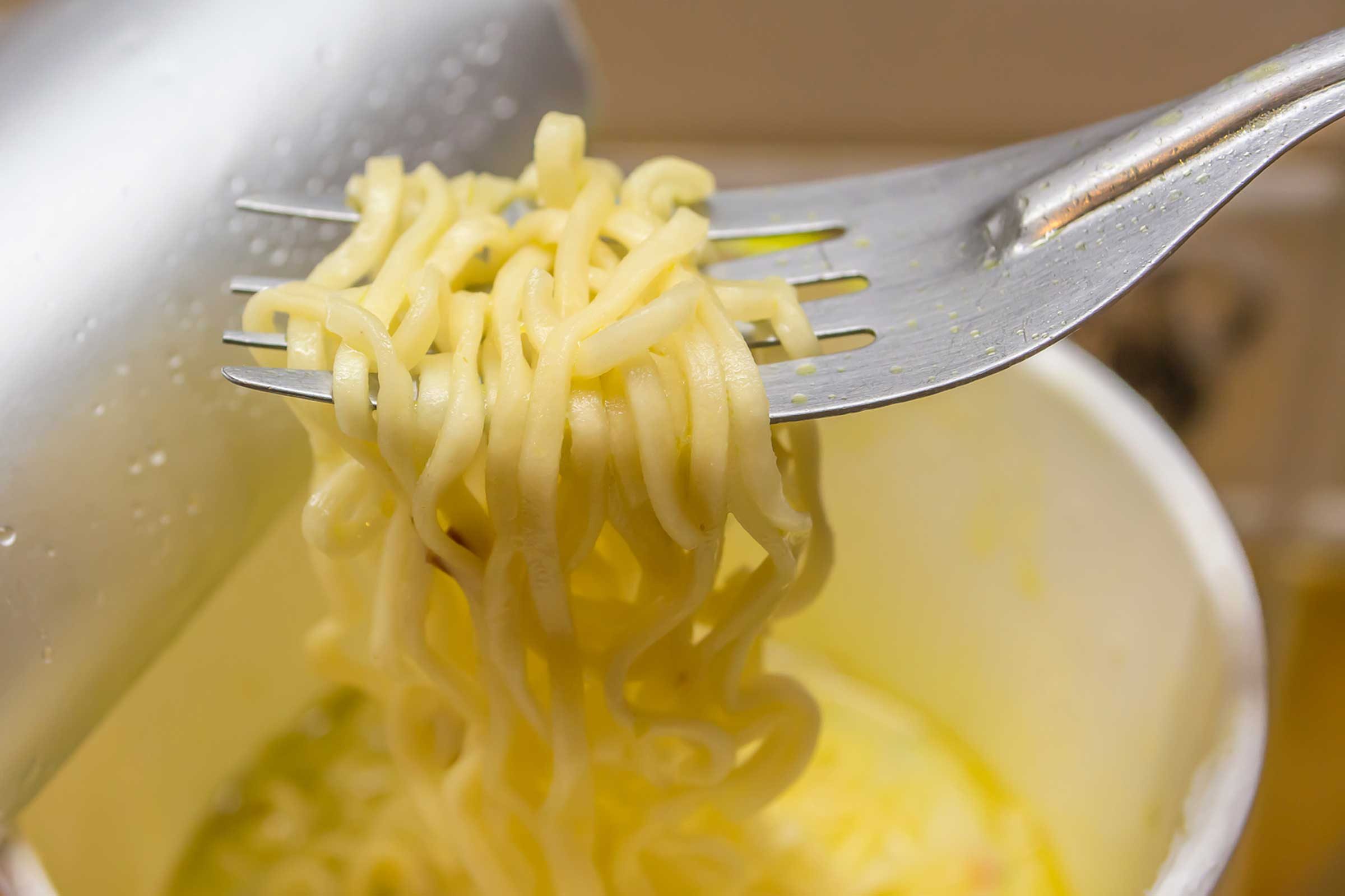
Instant ramen noodles
These crunchy packets of noodles are the staple of many college students. Cookbooks and food blogs provide countless suggestions make the noodles even more delicious. How much damage to your heart can a little square packet of noodles do? Did you know the noodles are deep fried first? That’s one factor that isn’t good for our heart. The other is salt. A typical packet of ramen has 875 mg of sodium. That’s a big chunk of the AHA recommendation of 1,500 miligrams. per day. Too much salt can cause our body to hang onto to excess fluid, which increases blood pressure and be taxing on the heart. And if you’re curious, this is what happens when you eat nothing but ramen for a week (spoiler alert: nothing good).
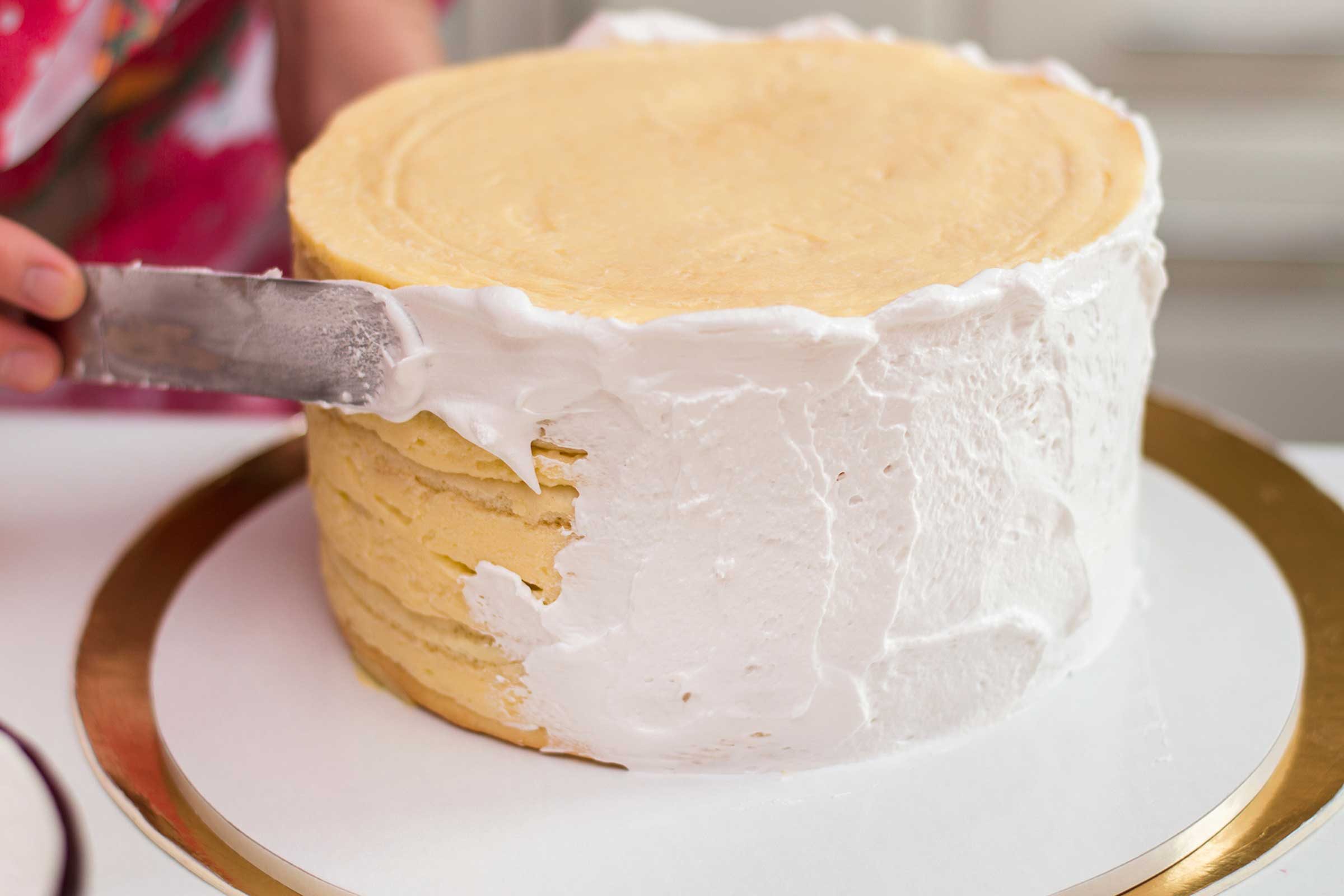
Frosting in a jar
Who can wait for the cake to cool before we dive into the jar of frosting? Tempting as it is, don’t dive in and limit the frosting you eat. Besides being full of preservatives and ingredients you can’t pronounce, it is a sugar nightmare for your heart. A typical jar of frosting can have as much as 20 grams per 2 tablespoons. First, we rarely eat just 2 tablespoons but even if we stuck to that, we would be pretty close to tipping the scales in the wrong direction for sugar consumption that day. The AHA recommends 36 grams per day for men and 24 grams per day when it comes to added sugars. Sugar contributes to an expanding waistline and an unhealthy heart. Canned frosting is also at the top of our must-read list of 30 foods that are never worth the calories.
